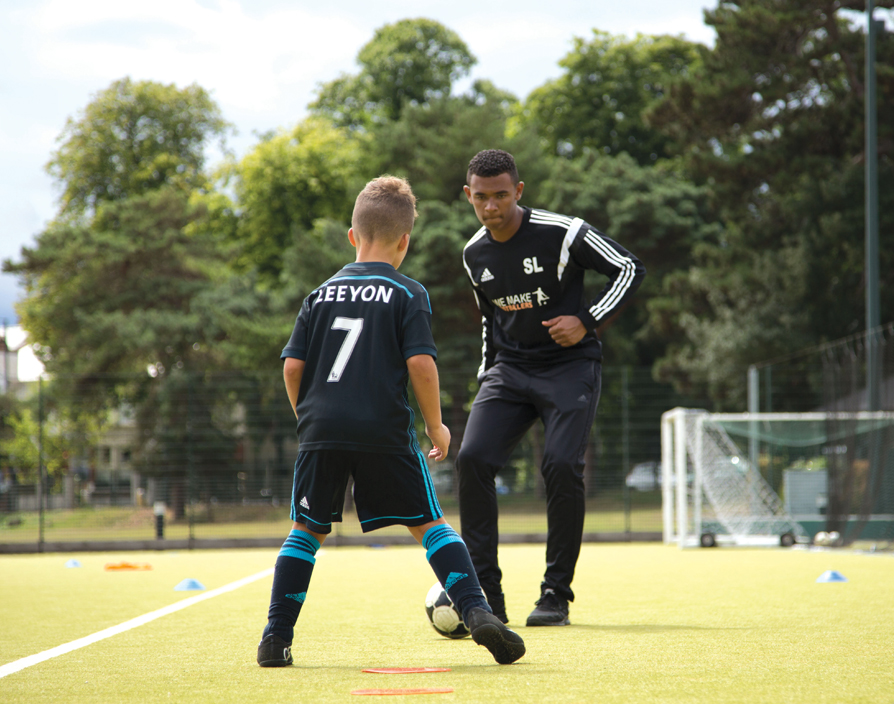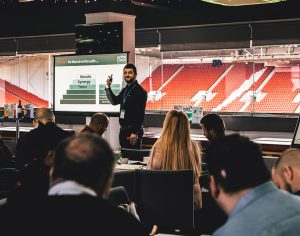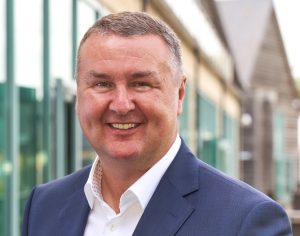Frustration. That single word sums up how Sean Conlon, founder and CEO of We Make Footballers, the football franchise, felt when England lost against Croatia in 2007, crushing the nation’s dreams of playing in the Euros. And like many of his fellow heartbroken countrymen, Conlon blamed the manager. “Under Steve McClaren, English football was at its lowest,” he says. “The team lacked a plan, technique and played without passion.”
After the match, Conlon decided that he’d devote himself to do whatever he could to ensure that the pitiful display would never be repeated. Now, a decade later, his company We Make Footballers is doing just that, providing children between the ages of four and 12 with a fun pasttime whilst ensuring football clubs have a pipeline of young and talented players eager to take British football into the 21st century.
And with an undertaking that big ahead of him, it’s fair to wonder where Conlon gets his energy from. The answer is that he draws his vigour from the love for the game, something his father bestowed upon him when he was fresh out of nappies. “My dad used to take me to the park to play football when I was two and a half,” says Conlon. “He wasn’t a professional player as much as an avid enthusiast.”
But that enthusiasm wasn’t the only thing his parents imparted to their oldest son. “They showed me that you can make a lot happen if you work hard enough,” says Conlon. That will to push himself towards his goal was put to good use when he devoted himself to becoming a professional footballer. “I thought I’d become a player like Jamie Vardy and fight my way to the top,” he says.
Aspiring to net that goal was what drove him to accept a deal with a former Chelsea scout-turned-coach who trained Old Isleworthians Football Club’s children’s team. The deal was that the coach offered to train Conlon if he volunteered at the coaching business. That’s how, when the coach had a falling out with the club a few years later, Conlon was perfectly placed to take advantage of the situation. “Because the club needed players, they asked me if I could take over for him and I said yes,” he says.
So, in 2007, with characteristic fervour Conlon kicked off Sports Linx, the company that would eventually become We Make Footballers. And it turned out he had a knack for the business. “I managed to double the number of children every week,” he says. “We went from two to four to eight and so on until three years later when we had over 1,000 kids with us.”
During that time, his younger brother Joseph joined the company as its digital strategy director and as Sports Linx grew the siblings began planning to turn the business into a franchise. The reason for that was simple. “Franchising is a win-win for everyone,” says Conlon. “I love the model because it empowers individuals to run their own business, rather than having employees all over the country who are hard to control and aren’t invested in the company.” This eventually resulted in Conlon having talks in 2014 with Sky Sports, which was interested in investing in the company and turning it into a franchise. “But I felt that the conversation was a little bit out of my league,” says Conlon.
Recognising his own shortcomings, Conlon reached out to Rockstar Mentoring Group, the business mentoring company, and Ian Lancaster, founder and former CEO of Twenty CI, the marketing agency, who had sold his company and was looking for his next challenge. And when Conlon asked for help navigating the treacherous waters of early-stage franchising, Lancaster found exactly what he was looking for. “He fell in love with the business,” says Conlon. When the deal with Sky fell through, it was Lancaster who helped the Conlons establish Sport Linx as a franchise and, in return, they granted Lancaster both the title of director and shares in the business.

Eric Johansson
As web editor and resident Viking, Johansson ensures Elite Franchise is filled with engaging and eclectic entrepreneurial stories. While one of our most prolific franchise writers, he has sharpened his editorial teeth by writing about entertainment and fitness. Follow him on Twitter at @EricJohanssonLJ to catch up with his stream of consciousness.

Eric Johansson
As web editor and resident Viking, Johansson ensures Elite Franchise is filled with engaging and eclectic entrepreneurial stories. While one of our most prolific franchise writers, he has sharpened his editorial teeth by writing about entertainment and fitness. Follow him on Twitter at @EricJohanssonLJ to catch up with his stream of consciousness.
































